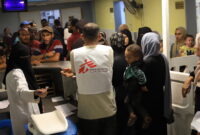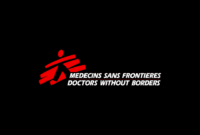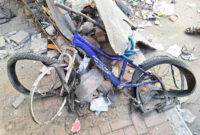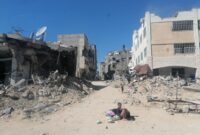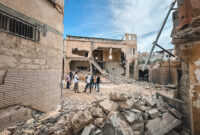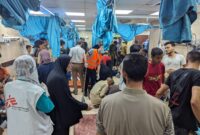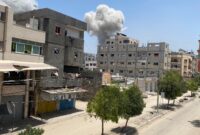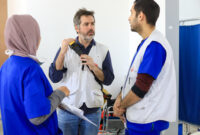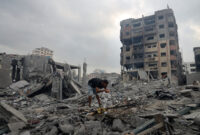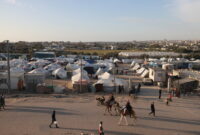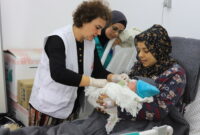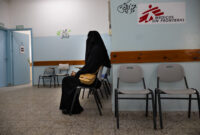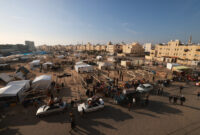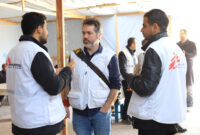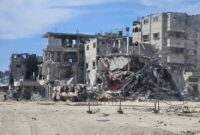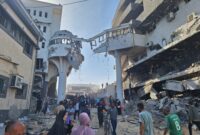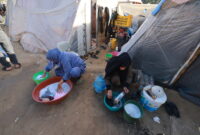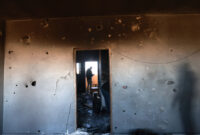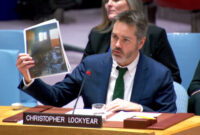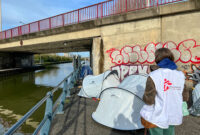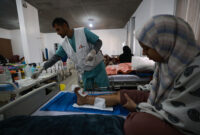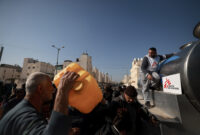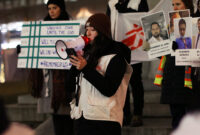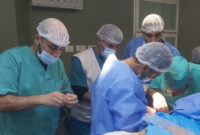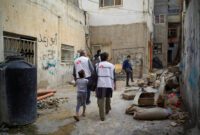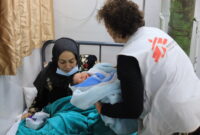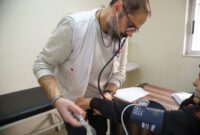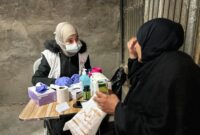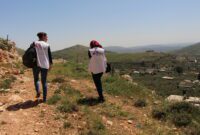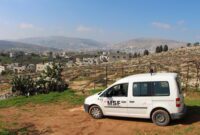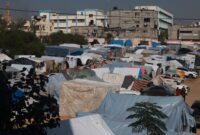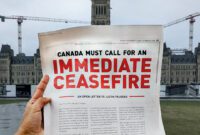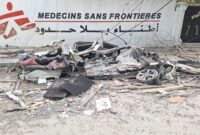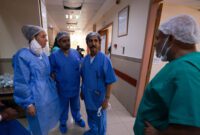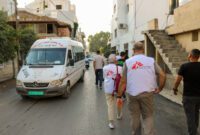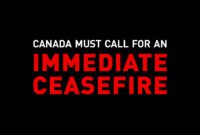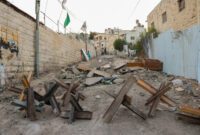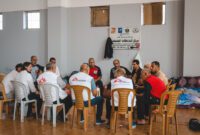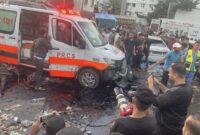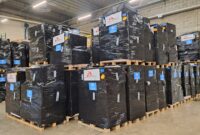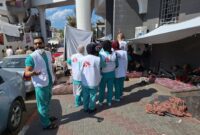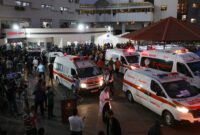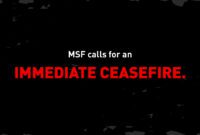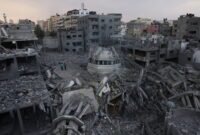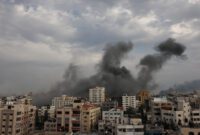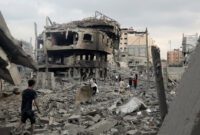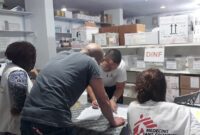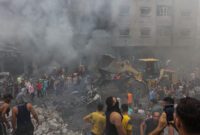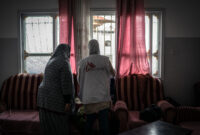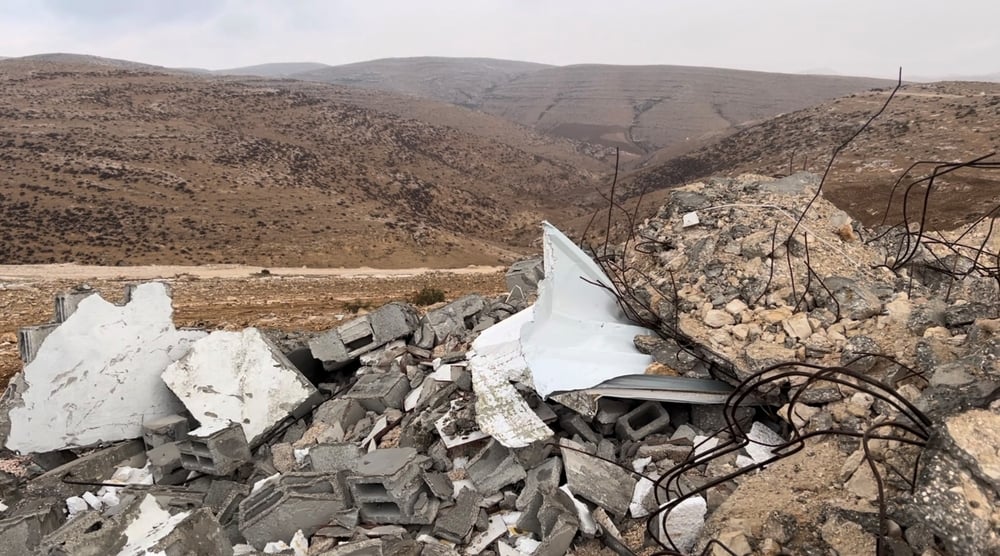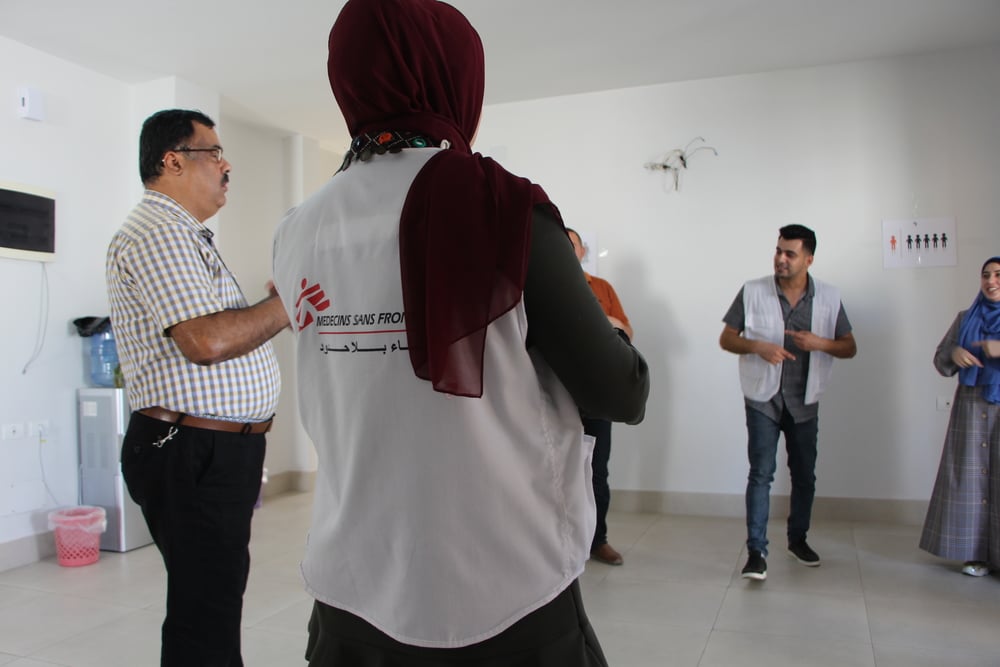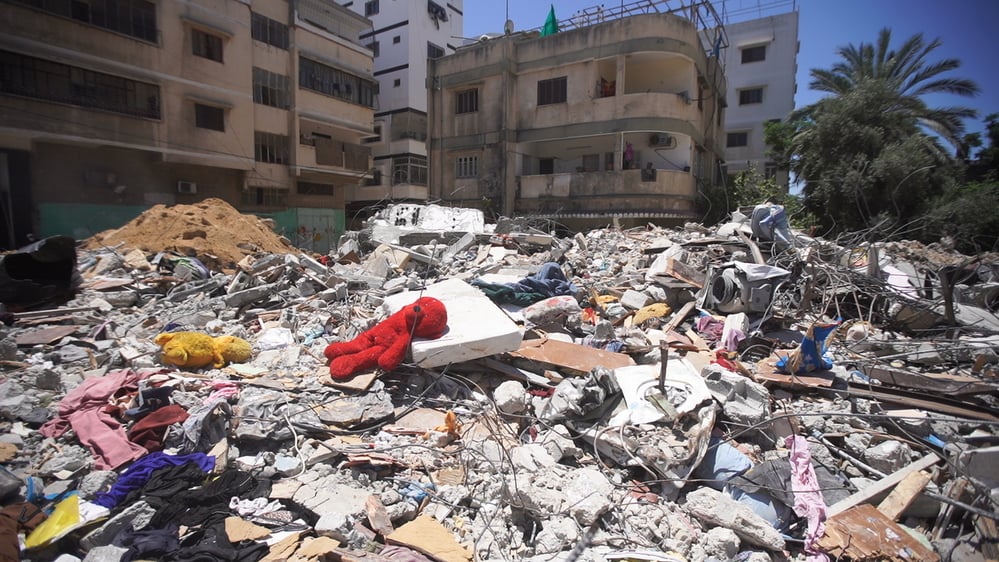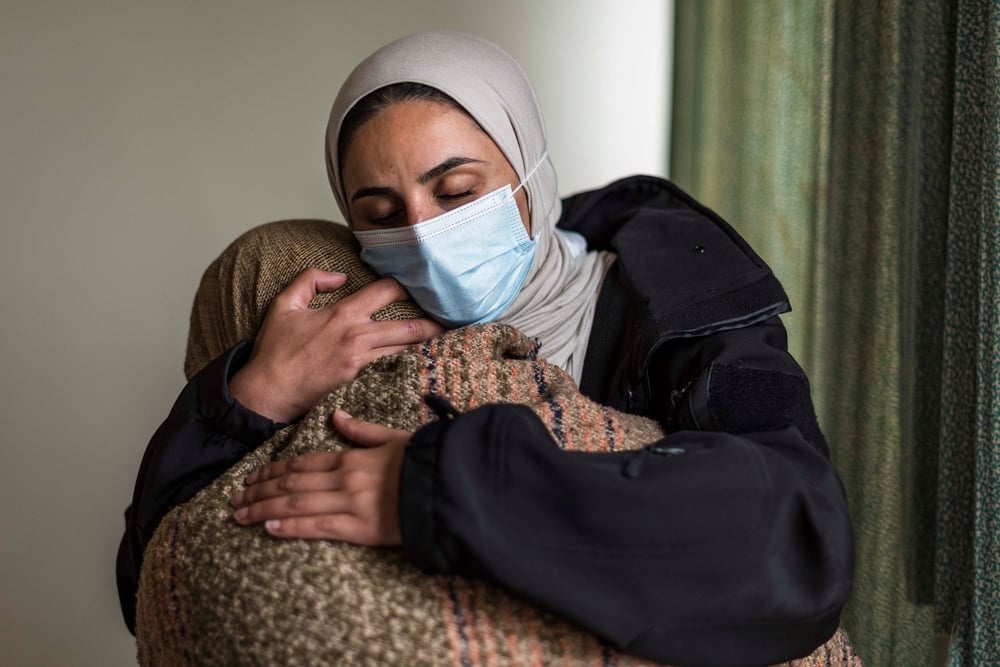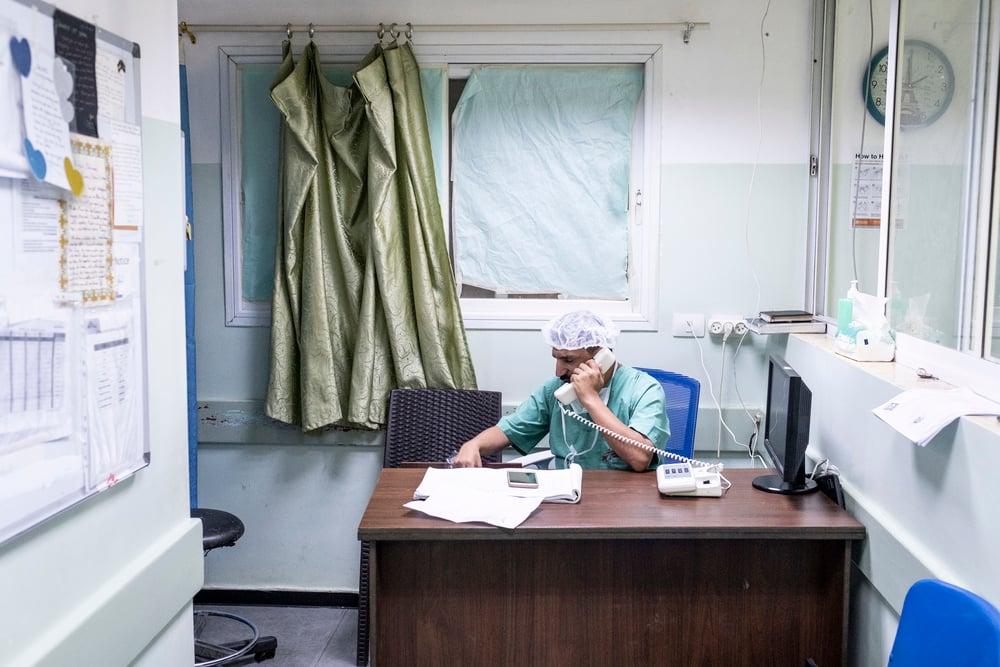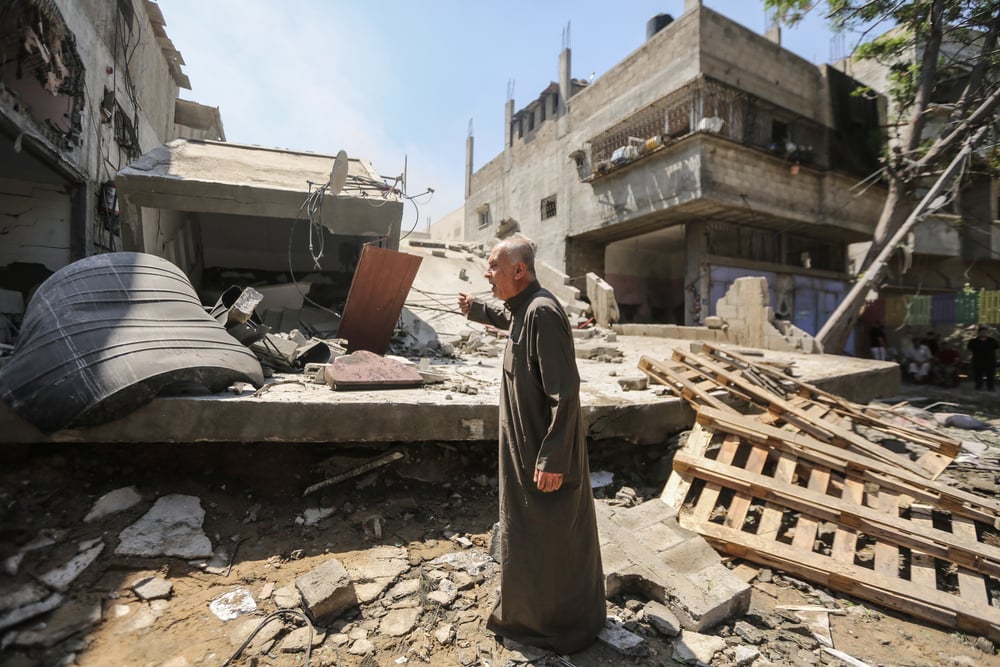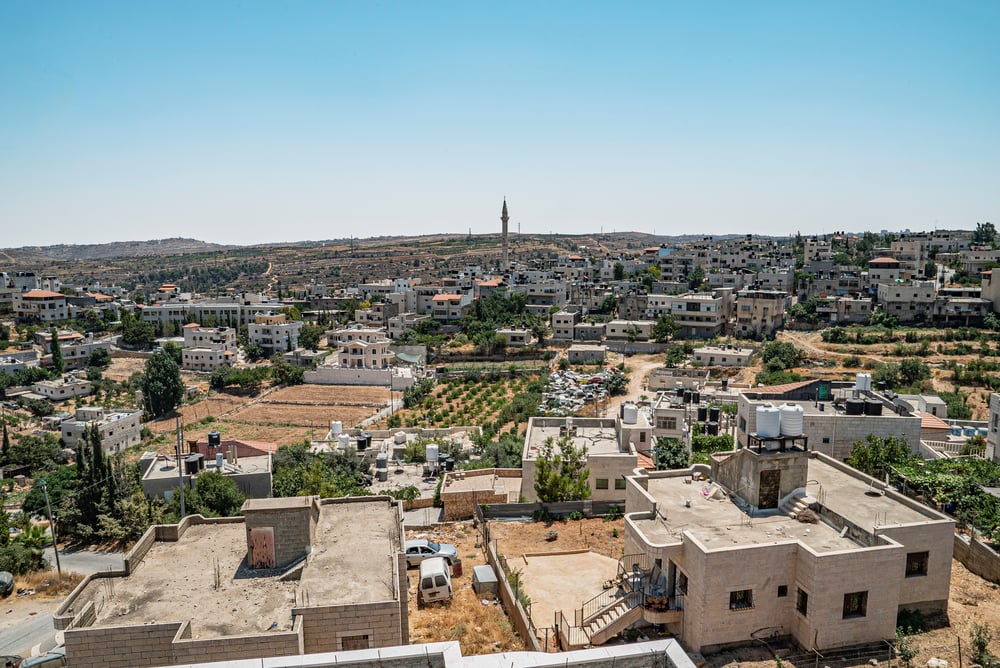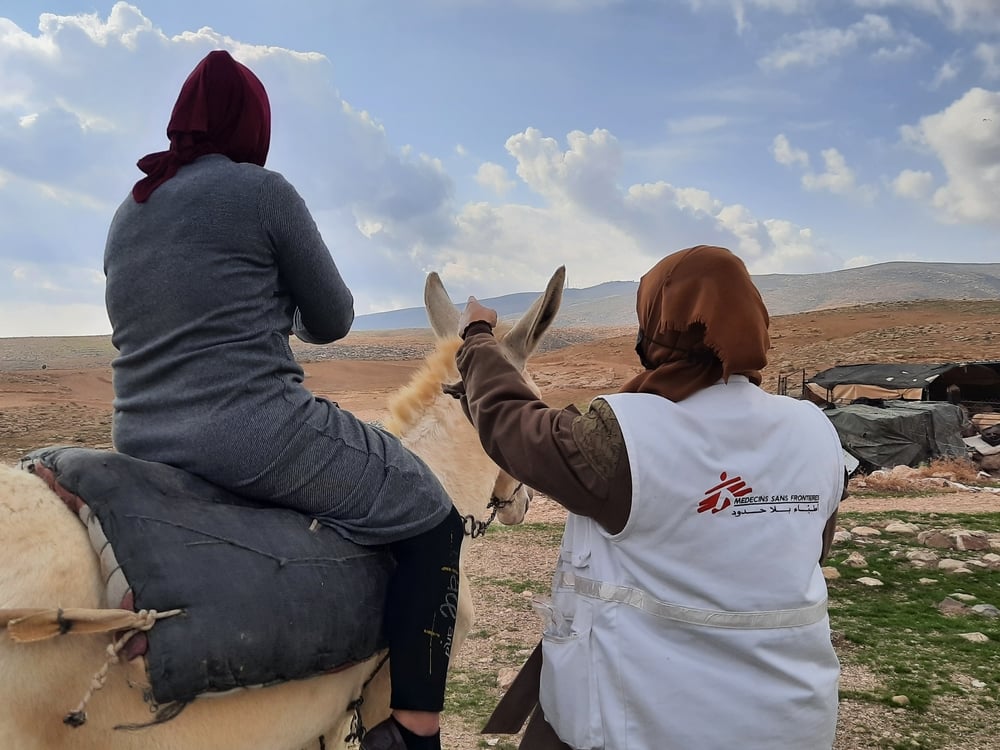Gaza: “The wounded are in danger of dying in the next few hours”
An update from Guillemette Thomas, Doctors Without Borders/Médecins Sans Frontières (MSF) medical coordinator for Palestine, based in Jerusalem.
The few medical facilities still operating in northern Gaza are under unimaginable duress. Many medical staff have been forced to flee to the south, as the Israeli strikes are relentless. The remaining staff have to cope with restricted access to electricity and water, in a context of siege. An update from Guillemette Thomas, Doctors Without Borders/Médecins Sans Frontières (MSF) medical coordinator for Palestine, based in Jerusalem.
What is the situation in Gaza’s hospitals?
Since the evacuation order issued by the Israeli authorities, forcing more than a million inhabitants to scramble to the south of the Gaza Strip, people have been forced to make extremely difficult choices between staying and leaving. For health workers, this meant the choice between abandoning their patients to an almost certain death or staying and risking their own lives.
Some stayed and continued to work despite the risks. We are in touch with some of our colleagues who are supporting the Ministry of Health teams, particularly in Al-Shifa hospital in Gaza City, where MSF had provided care for burn victims for years. Today, medical staff suffer the same fate as the rest of Gazans: they have been constantly bombed for the past 10 days. Our colleagues tell us that many doctors and other health workers have died since the start of the Israeli offensive.
They report that between 800 and 1,000 people are injured every day in the Gaza Strip, but this figure only includes those who manage to get to a hospital. Since access to health facilities is extremely dangerous and complicated by the shortage of petrol, only the most severe patients seek hospital care. Since the start of the conflict, more than 9,700 people have been injured. I believe that these people are in serious danger of dying in the next few hours because it’s becoming impossible to get medical attention.
Is the health system still functional in Gaza?
We are already witnessing the collapse of patient care. The medical staff can no longer treat people or admit new patients properly. Everything is being done in extremely poor conditions, with a shortage of staff, drugs and medical equipment. There are constant flows of patients and seriously injured people, with complex trauma wounds, burns, fractures and crushed limbs.
Al-Shifa hospital, the main hospital in Gaza, now hosts thousands of people who went there looking to be protected from the constant bombing. While Gaza is in the darkness, Al-Shifa is one of the few places that still has electricity, though the fuel will only last another 24 hours at most.
In short, without electricity, many patients will die – especially those in intensive care, neonatology and on respiratory support machines. Patients with chronic illnesses, such as diabetes and cancer, and pregnant women are also at risk due to a general shortage of medicines.
What do we know about the living conditions of displaced people in the south?
It has come to the point where water is our main priority. Today, 60 per cent of the people in Gaza, more than one million people, are estimated to live outside without access to water and healthcare. No basic healthcare is available because the clinics are closed, and hygiene conditions are very poor. In addition to those with severe injuries, we risk seeing a wave of illnesses linked to poor living conditions: illnesses like diarrhea, respiratory and skin infections and dehydration can develop rapidly, and seriously endanger the most vulnerable, including women and children. Half the people in Gaza are under the age of 18. Yet there is no health system left to care for them.
What do you see as the priorities for medical support?
It is vital to get the hospitals back up and running. To do that, regular ceasefires must be guaranteed for medicines and fuel to be brought in on a massive scale. If we run out of anaesthetic drugs, surgeons will be forced to stop operations.
Immediate humanitarian support is needed for the one million displaced people. They need access to water and sanitation, as well as basic healthcare, before their health deteriorates dramatically.
About MSF in Palestine
The information about our response, below, is correct as of Nov. 9, 2023.
MSF activities in Gaza are currently very limited. We have extreme difficulties delivering aid and providing healthcare due to the insecurity and the unpredictability of the bombardments. While some of our colleagues decided to move south following the unacceptable evacuation order of north Gaza, some of our other colleagues have remained in northern Gaza and continue to support in lifesaving activities in Al Shifa Hospital as well in Al Nasser hospital in the south. In Al Awda hospital, a team of seven MSF staff is also working in the MSF inpatient department.
We are also supporting local health authorities with donations from our medical stock. Due to the huge and uninterrupted influx of wounded people since the beginning of the current active conflict, Al Shifa Hospital, the main surgical facility in the Gaza strip, was on the brink of a complete shortage of essential medicines. In response, we recently were finally able to make a large donation of medical stock, including medicines and medical equipment to Al Shifa hospital.
Our staff are working hard on preparing medical and humanitarian supplies to be sent to Gaza when safe access will be guaranteed and open, and we’ll send in emergency teams if and when we’re able to.
MSF is committed to supporting the people affected by the Israeli heavy bombardments and indiscriminate attacks on Gaza. We stand in solidarity with healthcare workers and patients in Gaza. We want to be able to access people in need of medical care and offer lifesaving humanitarian services, but to do this we need basic guarantees of safety.
The West Bank
MSF’s medical and humanitarian activities in the West Bank have been affected by the escalation of violence and the reinforced movement restrictions that have limited people’s access to essential services, including healthcare. To adapt to the situation, MSF medical teams are providing phone consultations for Palestinian residents and displaced people, and referring patients for medical treatment, mental healthcare and social services. MSF mental health teams are also providing psychological first aid, counselling and psychotherapy, mostly remotely. In the West Bank city of Nablus, MSF teams are continuing to provide local people with mental healthcare.
MSF has donated medical supplies, including surgical kits, to Ahli hospital in Hebron, and first aid kits to community focal points in Beit Ummar, Al-Rashaydeh and to the emergency care centre in Um Al-Khair; and provided support including training for staff in Al Mohtaseb Hospital loca


